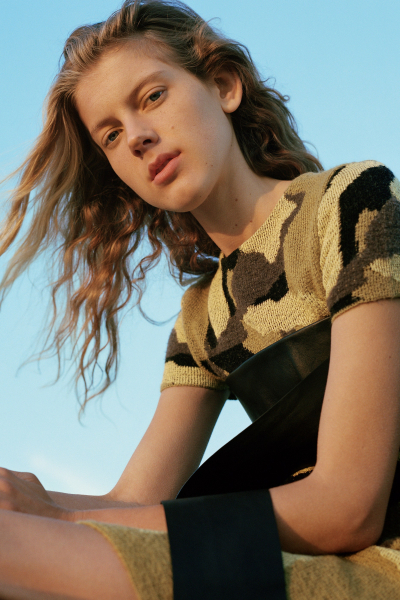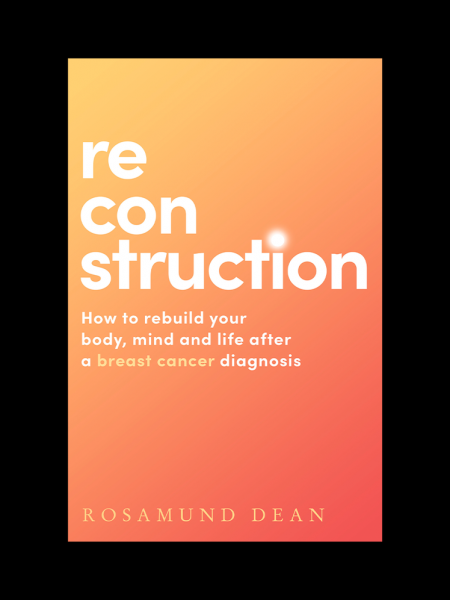
When I was diagnosed with breast cancer in January 2021, a stranger messaged me on Instagram. “You might not be ready to hear this yet,” she wrote, “but breast cancer was the best thing that ever happened to me.”
She was right; I was absolutely not ready to hear that.
In shock from the news, I had been hurled into a barrage of invasive tests, endlessly prodded and poked and jabbed with needles. I’d been told that I would lose my hair to chemotherapy, my right breast to surgery and that, aged 40, treatment would plunge me into early menopause. The idea that I’d find anything positive in this absolute shit show would have been laughable, if I could stop crying long enough to laugh.
Perhaps surprisingly, although the news was a shock and treatment was brutal, I didn’t actually think about the possibility of dying initially. With the naive optimism of someone who has never before had to face her own mortality, I was certain that breast cancer was totally survivable. This belief was informed not only by high-profile survivors like Kylie Minogue and Sam Taylor-Johnson, but also by my own nan, who had breast cancer twice and lived to 98. And it’s true that the statistics are really positive. While the number of diagnoses is sadly rising (around 57,000 every year in the UK), survival rates are also increasing as treatments improve. Three quarters of people with breast cancer will survive.
But over time, something shifted in my perception of the disease. During treatment, I kept hearing of brilliant women dying of breast cancer. The journalist Sarah Hughes, who had kindly shared advice when I was diagnosed, died two months later. The actress Helen McCrory died while I was going through chemo, and singer Sarah Harding just after my mastectomy.
My initial fears – around losing my hair, my breast, my fertility and my identity – started to seep into a darker fear that I couldn’t say out loud, not even to those closest to me. I tried to reassure myself: my cancer was caught in time to be treatable. I was one of the lucky ones.
It was 18 months of treatment in the end, starting with chemo, then mastectomy surgery with full axillary lymph node clearance, followed by radiotherapy and, to round it off, six more months of chemo. As I neared the end, feeling like a shell of my former self, I had a disconcerting conversation with a surgical registrar.
She explained that the type of breast cancer I had (called triple negative, because it doesn’t carry the three hormone receptors or proteins often targeted in treatment) comes with a higher risk of recurrence. [A word of reassurance to anyone newly diagnosed with triple negative breast cancer: the rate at which treatments are improving means your statistics are already far better. An immunotherapy drug that was approved for use on the NHS in 2022 dramatically reduces the chance of recurrence.] My diagnosis was grade three, the most aggressive type, and I did not have a complete response to chemo, meaning that there was still cancer in my breast and lymph nodes by the time of surgery. She told me to be “extremely vigilant” for signs of recurrence because there is around a 40 per cent chance it could come back as secondary cancer, meaning it will have spread to my lungs, liver, bones or brain. If this happens, it will no longer be curable and I’ll be on chemo until I die. The signs of recurrence for which I’m supposed to be “extremely vigilant”? It could be something as vague as pain in my back or shoulder, a headache or even fatigue.
Later, my oncologist said I should never have been told all this.
“So it’s not true?” I sniffed, hopefully. “Well, it’s factually correct,” she admitted, “but it doesn’t help to hear it.”
So just as I was emerging from treatment, with friends and family expecting me to be happy, relieved and back to normal, my emotional wellbeing was spiralling. Every twinge in my body felt like a threat. I started having panic attacks. I couldn’t look at my eight-year-old son and six-year-old daughter without a visceral fear that I wouldn’t be around to see them grow up.
These feelings were exacerbated by the fact that I was going through early menopause, which impacts mental health, and I couldn’t have HRT because it might further increase my risk of recurrence.
At rock bottom, I genuinely couldn’t see why I’d put myself through traumatic treatment to survive cancer, for this to be my life. That’s when I realised I couldn’t go on like this. I had to seize control, rather than living as though the grim reaper is in reception.
I started having therapy, which taught me practical tools to redirect negative thoughts. And I overhauled my lifestyle because, although there is no silver bullet that will prevent cancer, there are certainly things you can do to reduce your risk. They include eating well, managing stress and exercising – which I was astonished to learn can reduce the risk of recurrence so much that, in Australia, it’s prescribed alongside cancer treatment.
It wasn’t easy, but I’m learning to shift my mindset from mourning the things I’ve lost to cancer (including my collagen – post-menopause skin at 42 is no joke) to appreciating what it’s given me. And I’ve done it by facing up to my own mortality.
I went from someone who couldn’t contemplate death, to having a keen awareness of it. After all, cancer or no cancer, we’re all going to die and none of us knows when. And coming face to face with your own mortality makes you look at life in a different way.
People say that grief gives life sharp edges. When you’ve lost someone you love, even joyous moments hurt because you don’t have that person to share them with. Successful treatment for primary breast cancer can paradoxically have the opposite effect, whereby I now feel lucky and privileged to do ordinary things that I might previously have considered domestic drudgery. Small joys take on new meaning. A sunny day, a great cup of coffee, a hug. I’m no longer living life on autopilot.
This doesn’t mean that I’ve reached some higher state of consciousness where nothing ever bothers me and I fully enjoy every single moment. Don’t get me wrong: I still get stressed over deadlines and snap at my kids. I’m human.
But I’m now capable of letting go of a lot more than I used to. I can’t be bothered to get involved in petty grievances, or spend time with people who don’t make me feel good. I don’t worry about what other people think, or delay taking risks in my life and career until I have more time, or money, or confidence. I try to live as though life is short, while looking after my body as if it will be long.
So was breast cancer “the best thing that ever happened to me”, as that stranger on Instagram had suggested? Well, no. I definitely would prefer to not have had cancer. But now, at last, I can understand what she meant.

Reconstruction: How To Rebuild Your Body, Mind And Life After A Breast Cancer Diagnosis by Rosamund Dean
£14
Amazon
Rosamund Dean is the author of Reconstruction: How to rebuild your body, mind and life after a breast cancer diagnosis (HarperCollins)



